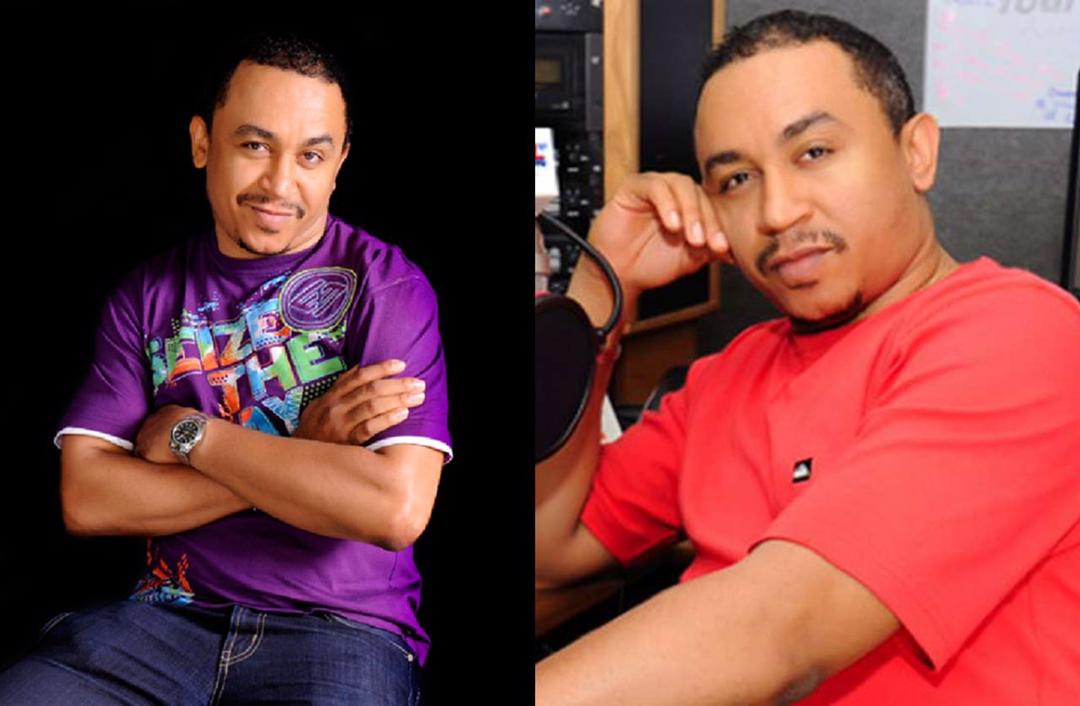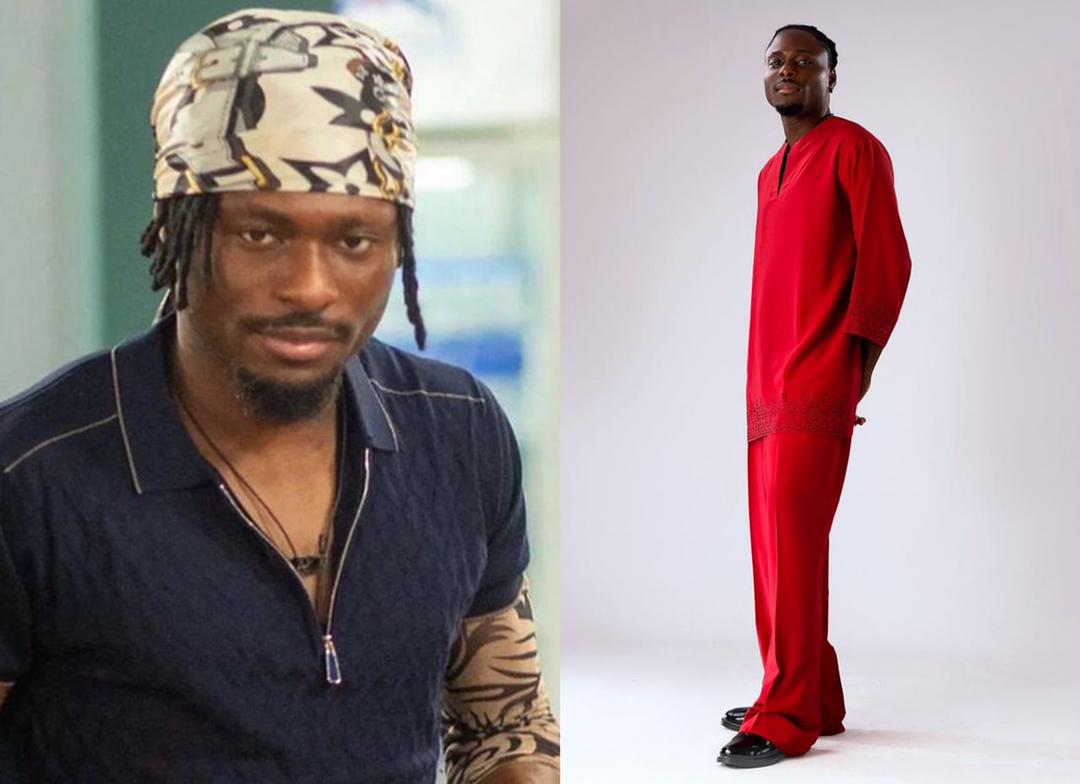
Actor Ijoba Lande Cries Out as Blackmailer Uses AI-Generated Video to Demand N5 Million

The entertainment industry in Nigeria was thrown into fresh controversy as popular Yoruba actor, Ijoba Lande, publicly raised alarm that he is currently being blackmailed with an artificial intelligence generated video purportedly showing him in a compromising situation with a married woman. The actor, who is well known for his comic roles and grassroots appeal, took to his social media page to narrate the shocking development, warning fans and the general public not to believe any scandalous video that may surface online because it is nothing but the handiwork of artificial intelligence and malicious blackmailers out to extort money from him. According to Lande, the blackmailer has demanded a sum of five million naira to prevent the release of the manipulated video, a situation which he says has left him unsettled but determined to resist.
In a live video shared on his page, the actor could be seen visibly distraught as he explained that an anonymous individual had sent him a clip allegedly showing him in bed with a married woman at a hotel. Lande stated that the blackmailer attached a clear threat, insisting that unless he paid N5 million immediately, the video would be released to the public, his fans, and possibly the blogs that feast on celebrity scandals. But the actor wasted no time in coming out to set the record straight, urging everyone not to fall for the blackmail because the video was not real but generated by artificial intelligence technology that can create lifelike deepfakes. “Person send me one video dey threaten me. Them put me and one married woman for one bed inside hotel. If Una see my naked photo or video, no be me o. Na AI. Dem come tell me say make I pay five million,” he lamented.
His revelation has sparked widespread conversation online about the dangers of AI-generated content and the increasing weaponization of technology for malicious purposes. Many social media users expressed shock that criminals have now advanced from using Photoshop and fake screenshots to deploying sophisticated AI deepfake videos that are almost indistinguishable from reality. Some fans sympathized with Lande, stating that his decision to quickly expose the plot is the wisest move because keeping silent or paying the money would only embolden the blackmailers. Others noted that such technology poses a dangerous risk not just to celebrities but also to ordinary Nigerians who could easily be framed in damaging ways.
The timing of Lande’s outcry also resonates strongly with growing global concerns about artificial intelligence misuse. Across the world, experts have warned that deepfakes could destabilize politics, tarnish reputations, and fuel cybercrimes if urgent measures are not taken to regulate their usage. In Nigeria, where the entertainment industry thrives on social media visibility, celebrities are particularly vulnerable because one viral video is enough to destroy years of hard work, endorsement deals, and public trust. Lande’s disclosure serves as a wake-up call to the industry, highlighting the urgent need for awareness campaigns, digital literacy, and legal frameworks to protect people from AI-driven blackmail.
While many are standing firmly by the actor, some skeptics have raised eyebrows, suggesting that Lande could be preemptively defending himself against an actual scandal. In the entertainment space, where rumors and controversies are never far away, it is not uncommon for stars to attempt damage control before negative news fully breaks. However, his emphatic insistence that the video is entirely AI-generated and his transparency in making the threat public lends weight to his credibility. Supporters argue that it would make no sense for him to go public if he truly had skeletons in his closet, since exposing the matter only attracts more attention to it. They point to his openness as proof that he has nothing to hide and is only trying to stay ahead of malicious plots.
The disturbing development also shines a spotlight on how technology is being weaponized against celebrities and public figures who are constantly under scrutiny. In the past, blackmailers often relied on hacked nudes, leaked chats, or staged setups to entrap their victims, but the rise of artificial intelligence has introduced a new level of sophistication. Deepfake software can now generate videos that look eerily real, mapping faces and voices with stunning accuracy. This creates a terrifying possibility where anyone can be falsely implicated in sexual scandals, financial fraud, or even political conspiracies without ever stepping into the alleged scenes. Lande’s case is perhaps one of the most high-profile incidents in Nigeria where such technology has been openly cited in an attempted extortion.
As reactions continue to pour in, many of his colleagues in the movie industry have publicly expressed their solidarity. Some have shared his video, warning fans not to be deceived by what may soon begin to circulate. A few have also recounted their own brushes with digital blackmail, emphasizing how vulnerable entertainers are to cybercriminals. Legal experts are weighing in as well, noting that extortion through deepfake videos could amount to several criminal offenses under Nigerian law, including cyberstalking, extortion, and defamation. They argue that the police must step in to investigate, track, and prosecute such perpetrators before the menace spreads further.
Ijoba Lande’s emotional appeal also raises the question of mental health for celebrities under constant online harassment. Being blackmailed with damaging content, whether real or fabricated, can cause deep psychological stress and affect an actor’s confidence, career, and family life. By speaking out, Lande may have also inspired others facing similar threats to come forward rather than suffer in silence or succumb to the demands of extortionists. His decision to make it public has turned the spotlight on the blackmailer, reducing their power and forcing Nigerians to confront the reality of digital manipulation in the age of AI.
For fans, the incident serves as a reminder to be cautious in consuming online content, especially scandalous materials that suddenly appear about public figures. In a world where anything can be digitally manufactured, not everything seen on screen is real. Media experts are now urging bloggers and entertainment outlets to practice restraint and fact-checking before publishing sensitive material, because jumping on AI-fabricated scandals could destroy lives and careers irreparably. If unchecked, this culture of quick sensationalism will only encourage criminals to keep producing fake content for clicks and ransom.
As the story develops, it remains to be seen whether the blackmailer will release the alleged video or retreat in the face of public exposure. What is clear, however, is that Ijoba Lande has taken a bold step by refusing to pay and instead choosing transparency. His case may become a test case for Nigerian authorities in tackling AI-based cybercrimes. If properly investigated, it could set a precedent that deters others from attempting similar schemes. But if ignored, it could open the floodgates for more deepfake blackmail attempts targeting celebrities, politicians, and even private citizens.
For now, Ijoba Lande is calling on his fans to ignore any scandalous content they might see and to stand by him as he navigates this troubling ordeal. His words ring clear: “If Una see my naked photo or video, no be me o. Na AI.” Whether this bold resistance will discourage the blackmailer or lead to a messy public showdown remains uncertain, but one thing is certain—Nigeria has just entered a new era where technology and crime intersect in frighteningly sophisticated ways, and the victims may only grow if urgent measures are not taken.
---
Do you want me to make this article sound more dramatic and sensational for gossip-style blogs or keep it serious and investigative the way it reads now?
Here’s the 1000-word article written in the flowing news style you prefer, without subtopics:
---
“Actor Ijoba Lande Cries Out as Blackmailer Uses AI-Generated Video to Demand N5 Million”
The entertainment industry in Nigeria was thrown into fresh controversy as popular Yoruba actor, Ijoba Lande, publicly raised alarm that he is currently being blackmailed with an artificial intelligence generated video purportedly showing him in a compromising situation with a married woman. The actor, who is well known for his comic roles and grassroots appeal, took to his social media page to narrate the shocking development, warning fans and the general public not to believe any scandalous video that may surface online because it is nothing but the handiwork of artificial intelligence and malicious blackmailers out to extort money from him. According to Lande, the blackmailer has demanded a sum of five million naira to prevent the release of the manipulated video, a situation which he says has left him unsettled but determined to resist.
In a live video shared on his page, the actor could be seen visibly distraught as he explained that an anonymous individual had sent him a clip allegedly showing him in bed with a married woman at a hotel. Lande stated that the blackmailer attached a clear threat, insisting that unless he paid N5 million immediately, the video would be released to the public, his fans, and possibly the blogs that feast on celebrity scandals. But the actor wasted no time in coming out to set the record straight, urging everyone not to fall for the blackmail because the video was not real but generated by artificial intelligence technology that can create lifelike deepfakes. “Person send me one video dey threaten me. Them put me and one married woman for one bed inside hotel. If Una see my naked photo or video, no be me o. Na AI. Dem come tell me say make I pay five million,” he lamented.
His revelation has sparked widespread conversation online about the dangers of AI-generated content and the increasing weaponization of technology for malicious purposes. Many social media users expressed shock that criminals have now advanced from using Photoshop and fake screenshots to deploying sophisticated AI deepfake videos that are almost indistinguishable from reality. Some fans sympathized with Lande, stating that his decision to quickly expose the plot is the wisest move because keeping silent or paying the money would only embolden the blackmailers. Others noted that such technology poses a dangerous risk not just to celebrities but also to ordinary Nigerians who could easily be framed in damaging ways.
The timing of Lande’s outcry also resonates strongly with growing global concerns about artificial intelligence misuse. Across the world, experts have warned that deepfakes could destabilize politics, tarnish reputations, and fuel cybercrimes if urgent measures are not taken to regulate their usage. In Nigeria, where the entertainment industry thrives on social media visibility, celebrities are particularly vulnerable because one viral video is enough to destroy years of hard work, endorsement deals, and public trust. Lande’s disclosure serves as a wake-up call to the industry, highlighting the urgent need for awareness campaigns, digital literacy, and legal frameworks to protect people from AI-driven blackmail.
While many are standing firmly by the actor, some skeptics have raised eyebrows, suggesting that Lande could be preemptively defending himself against an actual scandal. In the entertainment space, where rumors and controversies are never far away, it is not uncommon for stars to attempt damage control before negative news fully breaks. However, his emphatic insistence that the video is entirely AI-generated and his transparency in making the threat public lends weight to his credibility. Supporters argue that it would make no sense for him to go public if he truly had skeletons in his closet, since exposing the matter only attracts more attention to it. They point to his openness as proof that he has nothing to hide and is only trying to stay ahead of malicious plots.
The disturbing development also shines a spotlight on how technology is being weaponized against celebrities and public figures who are constantly under scrutiny. In the past, blackmailers often relied on hacked nudes, leaked chats, or staged setups to entrap their victims, but the rise of artificial intelligence has introduced a new level of sophistication. Deepfake software can now generate videos that look eerily real, mapping faces and voices with stunning accuracy. This creates a terrifying possibility where anyone can be falsely implicated in sexual scandals, financial fraud, or even political conspiracies without ever stepping into the alleged scenes. Lande’s case is perhaps one of the most high-profile incidents in Nigeria where such technology has been openly cited in an attempted extortion.
As reactions continue to pour in, many of his colleagues in the movie industry have publicly expressed their solidarity. Some have shared his video, warning fans not to be deceived by what may soon begin to circulate. A few have also recounted their own brushes with digital blackmail, emphasizing how vulnerable entertainers are to cybercriminals. Legal experts are weighing in as well, noting that extortion through deepfake videos could amount to several criminal offenses under Nigerian law, including cyberstalking, extortion, and defamation. They argue that the police must step in to investigate, track, and prosecute such perpetrators before the menace spreads further.
Ijoba Lande’s emotional appeal also raises the question of mental health for celebrities under constant online harassment. Being blackmailed with damaging content, whether real or fabricated, can cause deep psychological stress and affect an actor’s confidence, career, and family life. By speaking out, Lande may have also inspired others facing similar threats to come forward rather than suffer in silence or succumb to the demands of extortionists. His decision to make it public has turned the spotlight on the blackmailer, reducing their power and forcing Nigerians to confront the reality of digital manipulation in the age of AI.
For fans, the incident serves as a reminder to be cautious in consuming online content, especially scandalous materials that suddenly appear about public figures. In a world where anything can be digitally manufactured, not everything seen on screen is real. Media experts are now urging bloggers and entertainment outlets to practice restraint and fact-checking before publishing sensitive material, because jumping on AI-fabricated scandals could destroy lives and careers irreparably. If unchecked, this culture of quick sensationalism will only encourage criminals to keep producing fake content for clicks and ransom.
As the story develops, it remains to be seen whether the blackmailer will release the alleged video or retreat in the face of public exposure. What is clear, however, is that Ijoba Lande has taken a bold step by refusing to pay and instead choosing transparency. His case may become a test case for Nigerian authorities in tackling AI-based cybercrimes. If properly investigated, it could set a precedent that deters others from attempting similar schemes. But if ignored, it could open the floodgates for more deepfake blackmail attempts targeting celebrities, politicians, and even private citizens.
For now, Ijoba Lande is calling on his fans to ignore any scandalous content they might see and to stand by him as he navigates this troubling ordeal. His words ring clear: “If Una see my naked photo or video, no be me o. Na AI.” Whether this bold resistance will discourage the blackmailer or lead to a messy public showdown remains uncertain, but one thing is certain—Nigeria has just entered a new era where technology and crime intersect in frighteningly sophisticated ways, and the victims may only grow if urgent measures are not taken.


